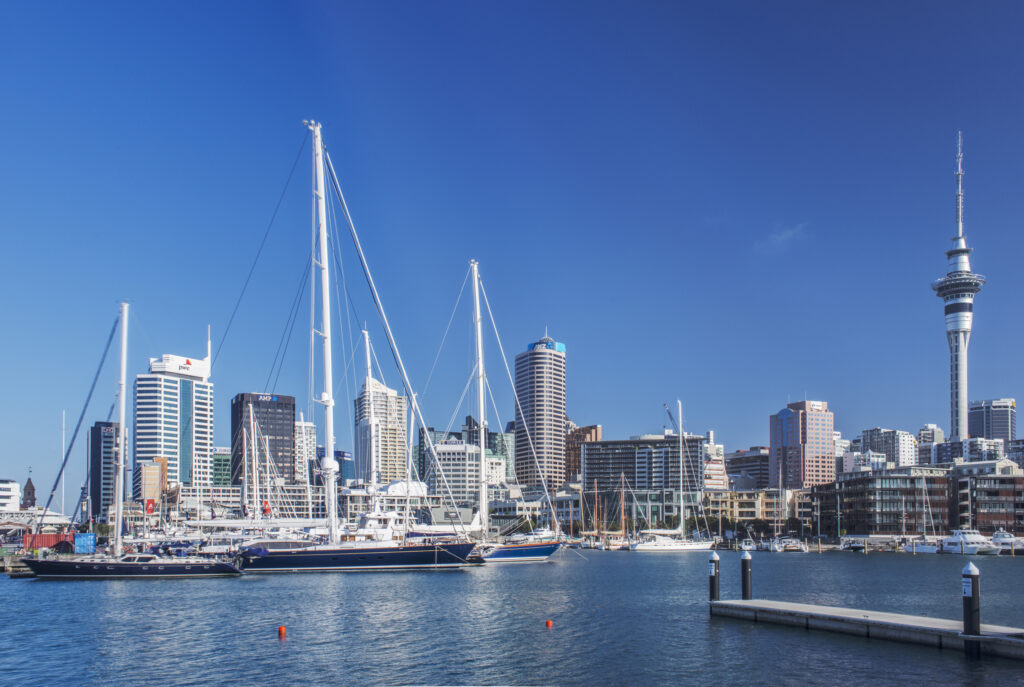Alternative Investments: New Zealand Property Market Slowing
The past decade has seen an increase in those looking to invest offshore in uncorrelated assets. Subsequently, the emerging, and developed, economies in Asia Pacific have seen a significant inflow of cash as investors look for yield. However, the game is changing as the money flow has seemingly reversed in 2023 and the New Zealand property market is slowing.
Was the New Zealand Property Market a Good Investment?

In short, yes. Successive New Zealand governments have introduced property effective tax policies that has made it highly attractive to invest in the sector. Subsequently, we have seen residential real estate prices close to triple over the past 8 years.
Much of the upward pressure has been due to strong levels of migration causing significant supply shortages. However, following the GFC, there has been significant money printing and stimulus which has all sought to inflate prices exponentially.
Additionally, there are sharp supply constraints in the building industry which has meant that, coupled with over-zealous regulations, saw demand for housing far outstripping what the country could build at any given time.
All of this, provided for an exceptional period of price growth that has seen property investors getting rich in short order. However, the cycle has now turned and there are storm clouds forming on the horizon.
Where Does the New Zealand Market Stand Currently?

Prices around the country are pulling back and investor activity has largely ceased in all but the most regional of markets. Auckland, New Zealand’s largest city, has seen median house prices fall by around 6% in the past 12 months.
Presently, there are no signs of this trend slowing down as house prices peaked in 2022 and local economic conditions have now conspired to ensure that further gains are unlikely in the near term.
Local economic conditions have brought about a cost-of-living crisis that has peaked alongside the highest mortgage rates seen in over 15-years. This has acted as a significant barrier to anyone looking to finance a house purchase and, subsequently, has broken the credit cycle.
Basically, first homeowners are unlikely to find financing without deposits exceeding 10-15%.
How Much Further Will Real Estate Fall
This is a difficult question to answer without a veritable crystal ball. However, the reality is that prices in real terms need to fall to account for static local incomes. Subsequently, I expect that nominal prices will continue an orderly slide of around 3-5% a year for the next three years.
It might not seem like a major fall, but you need to inflation adjust those prices and, when you do that, you end up seeing price falls of around 25% over the next three years. A revaluation such as this should allow Debt-to-income (DTI) ratios to get back into reasonable ranges before another growth cycle in prices can occur.
Should I Invest Now?

Please don’t consider this personal financial advice, but my personal preference is to sit on the sidelines and see what happens with the upcoming national election. There is a very real possibility that New Zealand will need to introduce a capital gains tax to pay back their misspent budget over the past few years.
There is a significant debate occurring on the “Fairness” of the local tax system and a CGT impost on property investors is a real concern. If such a tax was introduced, foreign interest in NZ real estate would evaporate and this could see prices in retreat.
Overall, the risks are currently weighted to the downside and is another reason why I would counsel waiting to jump in.
Is Offshore Real Estate Still a Play Over the Long Term
As an alternative investment, offshore real estate still provides superior returns over the long term. The reality is that money typically seeks the best yield it can get, and the Asian-Pacific emerging markets have provided fantastic returns over the past decade.
Sure, this is reversing now as US interest rates continue to rise. However, the Fed’s hiking cycle is coming to the end of its run and as rates start to decline the cash outflow back to the Emerging Markets will recommence.
Additionally, diversifying your holdings away from the aging U.S. economy is never a bad idea and bricks and mortar investments, generally, make the most sense.
Final Words on the New Zealand Property Market Slowing
New Zealand is one of the mature economies in Asia Pacific that provides an excellent option as an alternative investment. However, the current property cycle isn’t one that you should jump into without significant thought to your exit plans. There are plenty of downside risks on the horizon and I recommend sitting on the sidelines for the next 18-24 months and awaiting the new government to settle in and forward load their policies.
Best of Luck!


Comments are closed